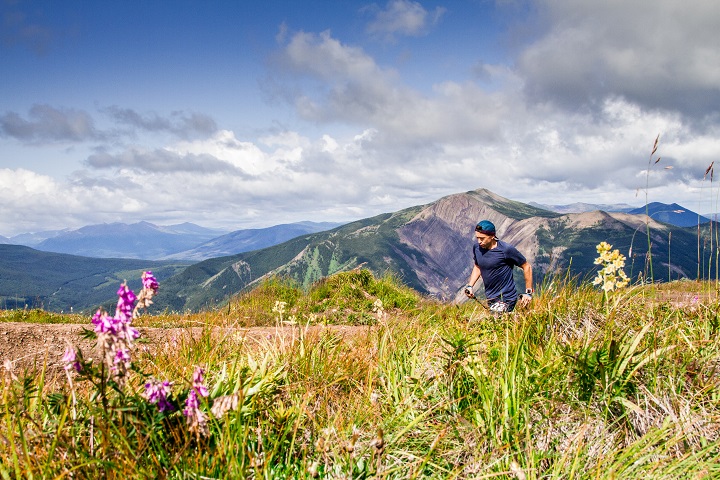While most of us spent our August long weekend relaxing, other Canadians gathered in the Rocky Mountains to push their bodies to the ultimate test.

The Canadian Death Race is a strenuous 125-kilometre course divided into five legs that starts and finishes on a 4,200-foot plateau, passes over multiple mountain summits and a major river crossing at Hell’s Gate Canyon at the junction of the Smoky and Sulphur rivers.
Alex Petrosky of Edmonton walked away as the race winner on Sunday, finishing with a time of 12 hours and 47 minutes.
“I was trying to be strategic. Picking my point when I’d separate from the field and not push too early. I’ve had an issue with that before. I take the approach that if you’re not running fast, you’re not trying.”
He laughed as he explained that this time he “relaxed for the first 50 kilometres” of this race.
“I know the competitors that are out there. I know the ones that can put down a really good time. I know I’m one of them. I pushed really, really hard. I separated myself from the field and I had a feeling I could capture this win.”
Petrosky hit his stride despite battling the elements of a rain-soaked course.
“This weekend was very painful. You’ve got wet mud, clay sticking to your feet. Some pretty rough bush. You’ve got scrapes cause you’re falling all over the place,” Petrosky said. “It was wet and muddy, but from a temperature standpoint, it was nice and cool. When it’s 25 degrees or higher, it really hurts the body. You can’t push as hard as you’d like to. It adds another variable to the race. I didn’t have that issue on Saturday.”
He acknowledged the event isn’t everyone’s ideal long weekend.
“It doesn’t sound like a lot of fun. I totally understand that. I don’t expect people to always understand where the passion comes from. But, if you’re having a good day out there. It’s pretty awesome.”
Petrosky said the last leg was the most difficult for him mentally, but not simply because of exhaustion.
“I ran into a black bear about six kilometres from the end of the race,” Petrosky explained.

Get daily National news
He said he was running along the trail when he realized he startled the animal.
“It was about 20 meters away. I talked calmly and backed away from it. I thought it would scurry back into the woods and I picked up a couple of stones. I was conflicted internally. I was super scared but I was really motivated to keep going. I thought, ‘I’ve got this win, I can’t stop!'”
He went around the bend and then realized the bear was in the trees right above him.
“That was really startling. I tried to not let that be a moment of intensity. I walked by and for the next 20 minutes or so I had a difficult time getting my heart rate down.”
LISTEN BELOW: Guest hosts Morgan Black & Brad Wisker chat with Alex Petrosky following his win at the Canadian Death Race
The Edmontonian spends time in the river valley preparing for ultramarathons, ramping up his training in February, eventually “peaking at 160 kilometres in a week.”
“That kind of prepares me for the distance aspect of it. With the trails, I’m doing my best to get up and down but there’s only so much you can do when you’ll eventually end up in the mountains!”
He said his last mountain climb put him into a meditative state, where he found his rhythm — despite bad conditions.
“It was like a river flowing down past your feet. It was pouring rain at the time. It was gushing down. The trail was the drainage route for the mountain,” Petrosky said. “I’ve done 30 of these runs, sometimes 16, 17 or 20 hours long… the farther in you get, the closer you are to failure in your body.”
So how much recovery time does he have before his next race?
“I have another ultramarathon lined up in the next few weeks in B.C. and I have another one four weeks after that,” Petrosky said. “I do wonder if I’ve bitten off a little more than I can chew. The body needs some time to recover.”
Prior to the Canadian Death Race, he ran a 160-kilometre run, which he explained took a bit of a toll on him.
“I didn’t feel ready to be on a start line until two days before the Canadian Death Race, I’ve learned the body has a way and the mind has a way of getting you ready for anything.”













Comments